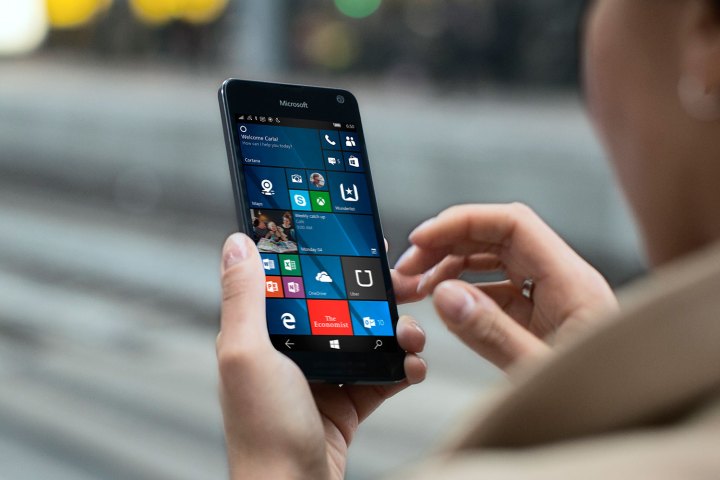
The 1,850 job cuts are coming soon, and 1,350 of them will be in Finland at Microsoft Mobile. This will result in an impairment charge of $950 million, including $200 million in severance pay. In an email to employees sent early Wednesday morning, Microsoft’s VP of Windows and Devices, Terry Myerson, talks about “streamlining the smartphone hardware business,” and “scaling back,” but adds that the company isn’t out of the phone business — it’s just adopting a more pragmatic approach.
“I used the words ‘be more focused’ above. This in fact describes what we are doing (we’re scaling back, but we’re not out!), but at the same time I don’t love it because it lacks the emotional impact of this decision. When I look back on our journey in mobility, we’ve done hard work and had great ideas, but have not always had the alignment needed across the company to make an impact,” he wrote.
Being more pragmatic and focused means concentrating on universal apps for Windows, and building apps for other mobile platforms, all based around Microsoft’s own tools. “Regardless of a person’s phone choice, we want everyone to be able to experience what Microsoft has to offer them,” Myerson said. He also promises to support current Lumia smartphones, and to release updates, plus to “develop great new devices.”
The wording on hardware is noncommittal. Is Microsoft in or out? According to an unnamed source speaking to the Helsingin Sanomat newspaper, and initially reported by Reuters, Microsoft will stop designing and manufacturing smartphones completely. The news was apparently shared during a special Microsoft-organized meeting in Espoo, Finland with local developers. Reuters has since amended its report with a comment from a Finnish union representative, saying the job cuts “essentially put an end to Microsoft’s development of new phones.”
Recent actions also point to Microsoft being finished with smartphones, at least for consumers. The latest cuts come less than a year after Microsoft slashed 7,800 jobs, most of which were related to phones, and initiated a restructuring of the mobile division to concentrate mostly on business customers. This month it sold off Nokia’s feature phone business, which it obtained with the original Nokia deal in 2014, for $350 million to HMD Group. Mobile hardware was barely mentioned during its Build developer conference in April, and according to the most recent analyst data, Windows Phone’s global market share dropped below 1 percent at the beginning of 2016.
While Windows Phones such as the Lumia 950 and 950XL are still on sale, it looks like they may be the last consumer-focused devices of their type we’ll see from Microsoft for now. What does this mean for the long-rumored Surface Phone? Like Microsoft’s phone strategy in general, its future — if it even has one — is very uncertain.


